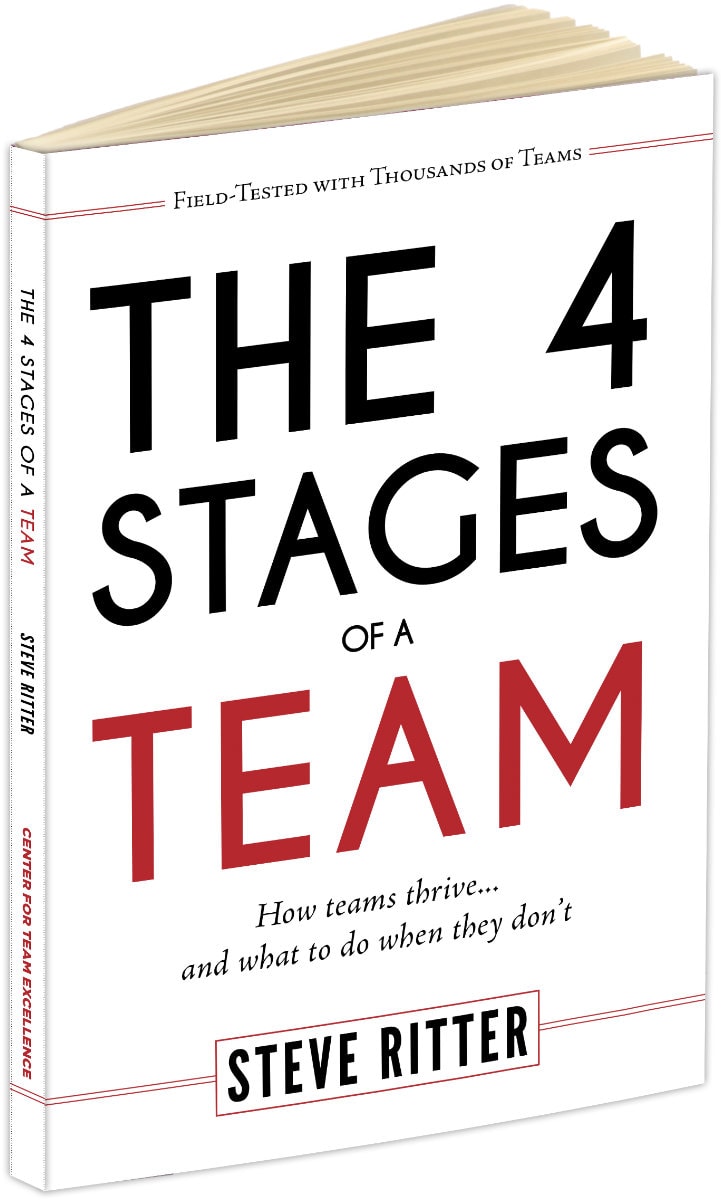The 4 Stages of a Team is a toolkit for team survival.
The Team Clock® method has been endorsed by internationally recognized leaders in sports, consumer products, professional services, education and healthcare seeking to improve business results and the wellness of their organizations.
The 4 Stages of a Team is a toolkit for team survival.
The Team Clock® method has been endorsed by internationally recognized leaders in sports, consumer products, professional services, education and healthcare seeking to improve business results and the wellness of their organizations.
Running a successful business involves people, processes and products. This book is about the people – written to support teams of people for sustained success.

Welcome to The Center for Team Excellence
What is Team Clock®?
Team Clock® transforms teams, impacting company culture and morale. By identifying and addressing the obstacles interfering with performance, teams can spend more time focusing on their work and less time on the politics of their workplace. Team Clock gives teams the tools they need to adapt to change and repair themselves for the lifespan of the entity.

How We Help
All relationships travel through cycles of growth and change. Whether it’s two people in a partnership, a team of people with a common goal or an organization with a mission, the living entity evolves through predictable stages. At the beginning, the team makes an INVESTMENT in a future together and carefully defines its direction. As the team becomes close and discovers how to work out differences, TRUST becomes the fuel for connection. The foundation of shared values and accountability becomes a platform for INNOVATION. This exploration creates change, which requires some DISTANCING to adjust to what has been lost, refuel and adapt to the new circumstances.
"Teams are messy. Conflict is unavoidable. Dynamics flow with the circumstances, mindsets, and emotions of the members involved. Graduates of top-tier schools are exceptional individual performers, but often struggle in teams."
How We Do It
Organizational Nirvana
Which team is yours – Aging rock stars? Perpetual motion? Comfortably numb? Toxic? The Center for Team Excellence has a solution. Contact us today to get started with Team Clock® and learn how we can help your team rise to new heights.
60 Seconds on the Team Clock
It’s Easier to Stay the Same Than to Change
Knowing what to do is easy. Executing is hard. Insight activates different competencies than action. The analysis phase of problem solving is fun. Brainstorm alternatives. Weigh pros and cons. Eventually, though, you have to act on an option. Here’s where things get dicey. Taking action means being responsible for the consequences of that decision. Most often, this stage requires a tolerance for change.
When the Student Becomes the Teacher
For most of us, learning happens every day. Most often, lessons arise from experiences rather than formal teacher-student alliances. Focused attention to the environment always illuminates or validates. When we build a connection with our surroundings, new pathways to growth open up. The same is true for formal pedagogy. It is the connection between student and teacher that becomes the ecosystem for exploration and discovery.
Clients We've Worked With

